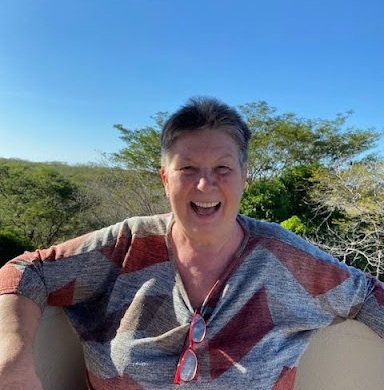 Catherine Lawrence has spent the majority of her career as an Administrator in the field of Higher Education at the University of Pennsylvania (UPenn). In this capacity, Catherine has helped students navigate University programs at the Undergraduate and Graduate levels. While working full time Catherine completed her Undergraduate and Graduate degrees (in the evening) receiving a B.S. in Communication, Political Science and History; as well as a M.S.Ed in Education (Reading, Writing and Literacy/Adult, Family and Community) with a certification as a Reading Specialist.
Catherine Lawrence has spent the majority of her career as an Administrator in the field of Higher Education at the University of Pennsylvania (UPenn). In this capacity, Catherine has helped students navigate University programs at the Undergraduate and Graduate levels. While working full time Catherine completed her Undergraduate and Graduate degrees (in the evening) receiving a B.S. in Communication, Political Science and History; as well as a M.S.Ed in Education (Reading, Writing and Literacy/Adult, Family and Community) with a certification as a Reading Specialist.
What led you to becoming a writer?
(CL): I have always been a writer in the academic setting while earning my graduate and undergraduate degrees; as well as writing as a requirement of my position as an administrator in the work place. The writing continued once I retired and became a Peace Corps Volunteer. I wrote and published weekly blogs of my experiences both as a Volunteer and as an Ex patriot; and continued to publish articles during this period with an on-line publication OpEdNews.com.
However, the true writing fire came as a result of COVID. I know I am not alone as I have heard this story from so many people. As a result of being sequestered during the pandemic I was able to take classes to expand my knowledge of the craft as well as becoming aware of resources to publish. COVID and all that came with it gave me the confidence to think that I could be a published author.
Do you have a favorite work that you’ve written?
(CL): Yes, actually I have 2 articles that I am very proud of:
WINGS – Published in the November 2023 Issue of Airways Magazine. This piece chronicled my experience as a first time pilot of a single-engine Cessna.
Living “Out of the Box” – Published in 2016 in Peace Corps Passports Publication. This piece spoke to my feelings of living in the Peace Corps.
What inspires you as a reader and writer?
(CL): I am in awe of authors who can articulate their thoughts with words. Curiosity and a desire to understand not only how we live; but, why we live drives me at times to reading multiple books simultaneously on different topics. I often seek answers in books; but, I realize there really are no answers in books. However, reading does give me the tools to formulate my own answers giving me ideas and new perspectives. As an aspiring writer it is my goal to emulate all that I derive from reading.
What topics do you usually delve into when writing?
(CL): My main source of material is myself and my experiences on topics such as travel, food, art, relationships, education, family, trauma, emotions, survival and teaching to name a few. I draw inspiration not only from my internal reflections; but, from everything around me. The world as my palette for writing. Also, I love being a member, for the past four years, of the WNBA Great Group Reads; and, have recently expanded my book reviewer skills to include NLAPW – National League of the American Pen Women by being given my first assignment as a book reviewer.
You’ve held a lot of different job titles in your life. Does any of your past experiences influence your work?
(CL): My Motto has always been “Buy experiences, not things”. I am always seeking out new experiences as a means of entertainment and growth. So often I am asked: “How do you find time to do all the things you do?” and my response is that “I don’t have television”. Twenty plus years ago I gave away my televisions as an experiment moving into a studio apartment. This allowed me time to spent my time seeking out new adventures and writing about them.
What is your favorite genre(s) to write and read?
(CL): I so enjoy reading historical fiction as well as (my guilty pleasure) murder. Books that deal with the human condition; how behavior is a predictor of events that drives me to see behind the facade of why we do what we do. Honestly, I would read any genre. As I said I write about myself and my experiences (as outlined in a previous response).
Once retired from her position at the UPenn in 2014, Catherine served in the Peace Corps in the Republic of Georgia. This 27 month program used her skills as an Educator in primary, secondary and University settings. Upon completion of the Peace Corps Catherine remained in the Republic of Georgia as an ex-patriot continuing teaching English and Reading. Catherine is also involved with the OSCE/ODHIR which observers elections in 57 States from Europe, Central Asia and North America. Its mandate includes many issues and Catherine is involved as an observer in one of their mandates which is to ensure free and fair election.
Catherine loves to travel and to-date has visited 55 countries. Her love of books and libraries have involved her in the WNBA where she was a facilitator of the monthly book group within WNBA; as well as a member of the Great Group Reads for the past four years. For the past year, Catherine has been working as a SP (Specialized Patient) at hospitals in the Philadelphia area. This role allows her to work with medical students, doctors, nurses and other members of the medical community to enhance their continuing education and medical school curriculum. Presently she is taking writing classes with the goal of publishing in the genre of Flash Fiction as well as honing her skills in journalism and interviewing.

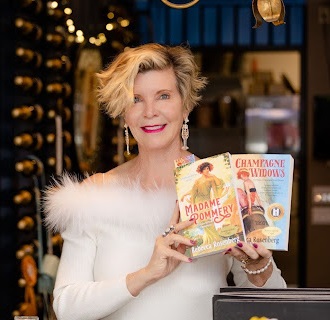 When Rebecca Rosenberg discovered the real-life widows who made champagne a world-wide phenomenon, she knew she’d dedicate years to telling their stories. These remarkable women include Veuve Clicquot, Madame Pommery, and Lily Bollinger.
When Rebecca Rosenberg discovered the real-life widows who made champagne a world-wide phenomenon, she knew she’d dedicate years to telling their stories. These remarkable women include Veuve Clicquot, Madame Pommery, and Lily Bollinger.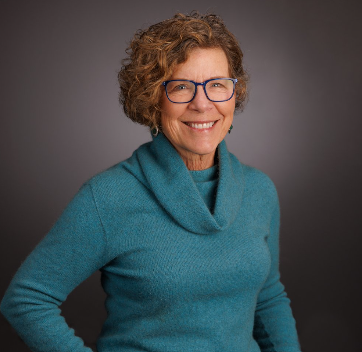 A voracious reader, Valerie Saul grew frustrated with the way women her age were portrayed in fiction. Mature women can be more than caregivers, grandmothers, and book club aficionados. They can also ride motorcycles, use chain saws, rescue drowning people, and chase bad guys on occasion. Her debut novel, The Badass Widows, is about women doing all those things while also dealing with love and loss.
A voracious reader, Valerie Saul grew frustrated with the way women her age were portrayed in fiction. Mature women can be more than caregivers, grandmothers, and book club aficionados. They can also ride motorcycles, use chain saws, rescue drowning people, and chase bad guys on occasion. Her debut novel, The Badass Widows, is about women doing all those things while also dealing with love and loss.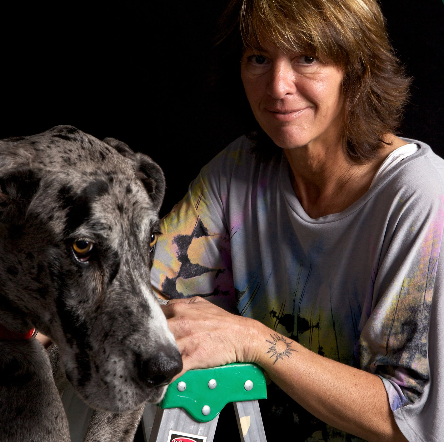 What was your favorite moment during the writing of The Badass Widows?
What was your favorite moment during the writing of The Badass Widows?  Goal-strategist, Debra Eckerling, joins us today, sharing her experiences with helping people achieve their goals, her thoughts on writing, and news about her new book, 52 Secrets for Goal-Setting and Goal-Getting.
Goal-strategist, Debra Eckerling, joins us today, sharing her experiences with helping people achieve their goals, her thoughts on writing, and news about her new book, 52 Secrets for Goal-Setting and Goal-Getting.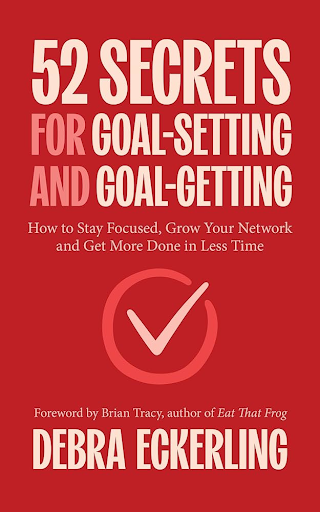 Can you tell us a little more about your new book?
Can you tell us a little more about your new book?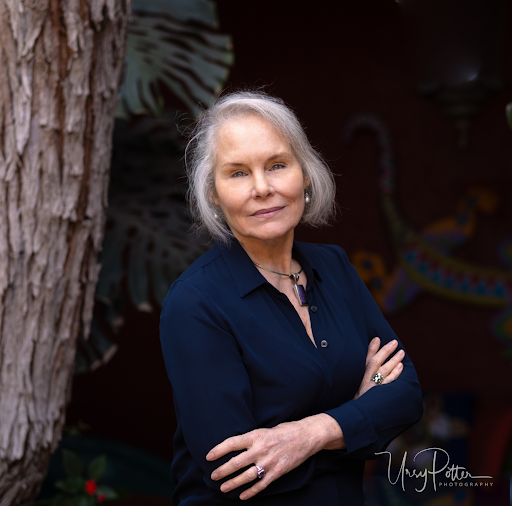 Clare Simons was the press person and gatekeeper to the stories of the terminally ill patient-plaintiffs defending Oregon’s Death With Dignity Act at the U.S. Supreme Court, and worked for passage of assisted dying laws in several states. She is a member of PEN International, the Women’s National Book Association and a former cohort at the Pinewood Table in Portland, Oregon and the Ocean Beach Writers Collective in San Diego.
Clare Simons was the press person and gatekeeper to the stories of the terminally ill patient-plaintiffs defending Oregon’s Death With Dignity Act at the U.S. Supreme Court, and worked for passage of assisted dying laws in several states. She is a member of PEN International, the Women’s National Book Association and a former cohort at the Pinewood Table in Portland, Oregon and the Ocean Beach Writers Collective in San Diego.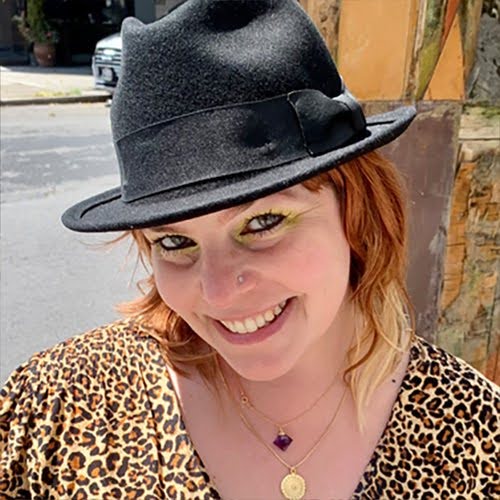
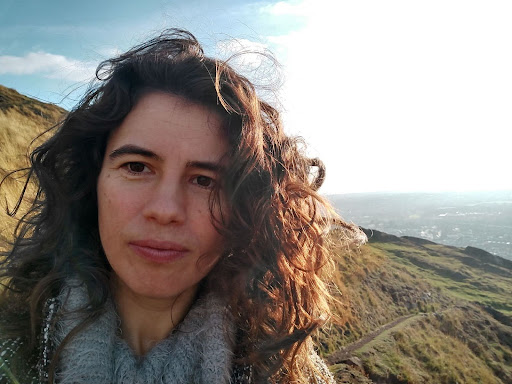 Jonica Tramposch is originally from the Pacific Northwest and is a nomad by nature, although she has been based in Orlando for several years at this point (which boggles her mind).
Jonica Tramposch is originally from the Pacific Northwest and is a nomad by nature, although she has been based in Orlando for several years at this point (which boggles her mind). 
 Mike Larsen is an author coach who loves helping writers reach their goals by adding value to their readers’ lives. Mike and his late wife Elizabeth Pomada worked in publishing in New York before moving to San Francisco in 1970 and starting Larsen-Pomada Literary Agents in 1972. They were charter members of the Association of Authors Representatives, and sold hundreds of books to more than 100 publishers and imprints, before they stopped seeking new clients.
Mike Larsen is an author coach who loves helping writers reach their goals by adding value to their readers’ lives. Mike and his late wife Elizabeth Pomada worked in publishing in New York before moving to San Francisco in 1970 and starting Larsen-Pomada Literary Agents in 1972. They were charter members of the Association of Authors Representatives, and sold hundreds of books to more than 100 publishers and imprints, before they stopped seeking new clients.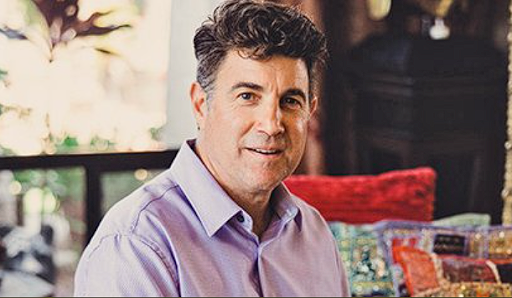 As a dedicated writer, Scott Sallinger has a deep interest in personal growth and human behavior. He studied psychology in college and completed a transformative three-year program at MTT, where he coached students in personal development. He has shared his insights in his book, numerous articles, and a series of how-to videos focused on creating a home with purpose and meaning.
As a dedicated writer, Scott Sallinger has a deep interest in personal growth and human behavior. He studied psychology in college and completed a transformative three-year program at MTT, where he coached students in personal development. He has shared his insights in his book, numerous articles, and a series of how-to videos focused on creating a home with purpose and meaning.
 Moderator Debra Eckerling, WNBA-SF’s networking ambassador, is an award winning author and podcaster. A goal strategist and the creator of the D*E*B METHOD® for Goal-Setting Simplified, Debra offers personal and professional planning,
Moderator Debra Eckerling, WNBA-SF’s networking ambassador, is an award winning author and podcaster. A goal strategist and the creator of the D*E*B METHOD® for Goal-Setting Simplified, Debra offers personal and professional planning, 
 Chef Rossi is the director, owner, and executive chef of “The Raging Skillet,” a cutting-edge catering company known for breaking any and all rules. She penned the memoirs, The Raging Skillet and The Punk Rock Queen of the Jews, and has also written two full-length plays, a number of one-act comedies, and a one-woman stage adaptation of The Punk Rock Queen of the Jews. She hosts the Raging and Eating podcast.
Chef Rossi is the director, owner, and executive chef of “The Raging Skillet,” a cutting-edge catering company known for breaking any and all rules. She penned the memoirs, The Raging Skillet and The Punk Rock Queen of the Jews, and has also written two full-length plays, a number of one-act comedies, and a one-woman stage adaptation of The Punk Rock Queen of the Jews. She hosts the Raging and Eating podcast.  Dayna Steele is the host of the #survivingalzheimers podcast for caregivers, friends, and families of those diagnosed with Alzheimer’s and a new podcast, Off Their Rockers, for women 50+ still rocking this world! She is also a rock radio Hall of Famer and the playwright and star of the award-winning play The Woman in the Mirror, based on her best-selling book Surviving Alzheimer’s with Friends, Facebook, and a really big glass of Wine.
Dayna Steele is the host of the #survivingalzheimers podcast for caregivers, friends, and families of those diagnosed with Alzheimer’s and a new podcast, Off Their Rockers, for women 50+ still rocking this world! She is also a rock radio Hall of Famer and the playwright and star of the award-winning play The Woman in the Mirror, based on her best-selling book Surviving Alzheimer’s with Friends, Facebook, and a really big glass of Wine.